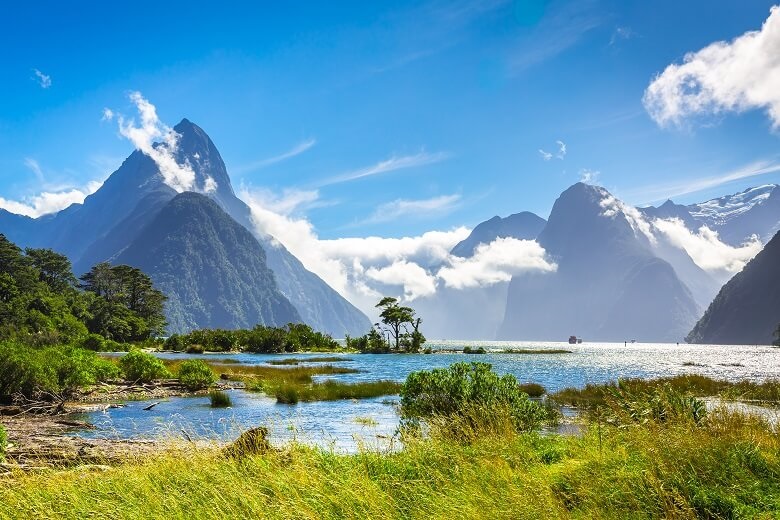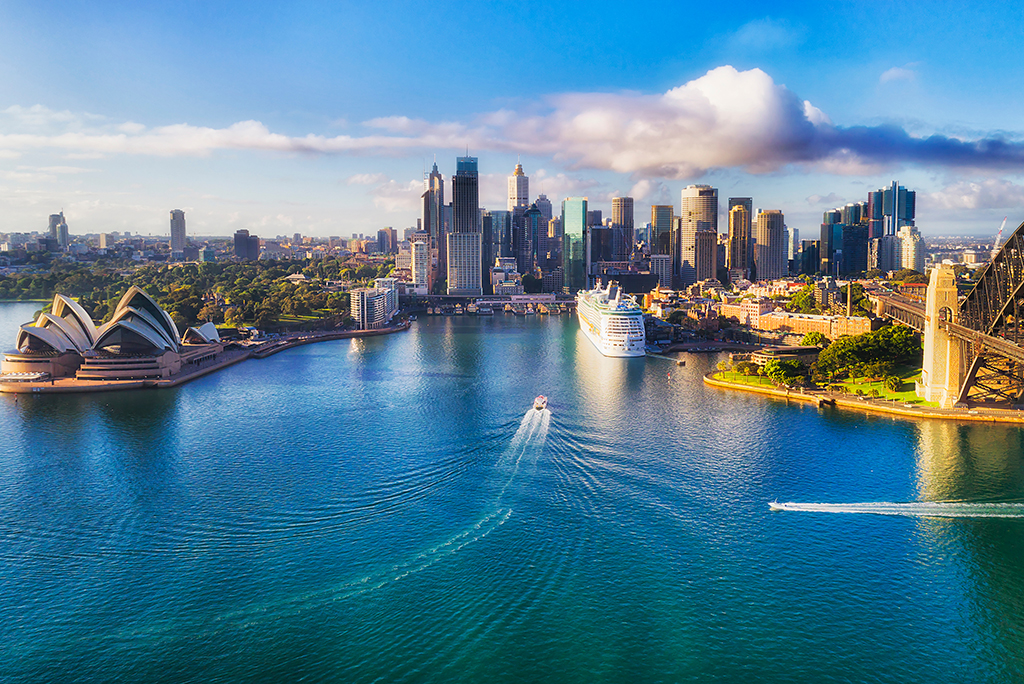Oceania has a diverse mix of economies from the highly developed and globally competitive financial markets of Australia, New Caledonia and New Zealand, which rank high in quality of life and human development index, to the much less developed economies such as Papua New Guinea, Indonesian New Guinea, Kiribati, Vanuatu and Tuvalu, while also including medium-sized economies of Pacific islands such as Palau, Fiji and Tonga. The largest and most populous country in Oceania is Australia, and the largest city is Sydney.
The first settlers of Australia, New Guinea, and the large islands just to the east arrived more than 60,000 years ago. Oceania was first explored by Europeans from the 16th century onward. Portuguese navigators, between 1512 and 1526, reached the Tanimbar Islands, some of the Caroline Islands and west Papua New Guinea. On his first voyage in the 18th century, James Cook, who later arrived at the highly developed Hawaiian Islands, went to Tahiti and followed the east coast of Australia for the first time. The Pacific front saw major action during the Second World War, mainly between Allied powers the United States and Australia, and Axis power Japan.
The arrival of European settlers in subsequent centuries resulted in a significant alteration in the social and political landscape of Oceania. In more contemporary times there has been increasing discussion on national flags and a desire by some Oceanians to display their distinguishable and individualistic identity. The rock art of Aboriginal Australians is the longest continuously practiced artistic tradition in the world. Puncak Jaya in Papua is the highest peak in Oceania at 4,884 metres. Most Oceanian countries have a parliamentary representative democratic multi-party system, with tourism being a large source of income for the Pacific Islands nations.


